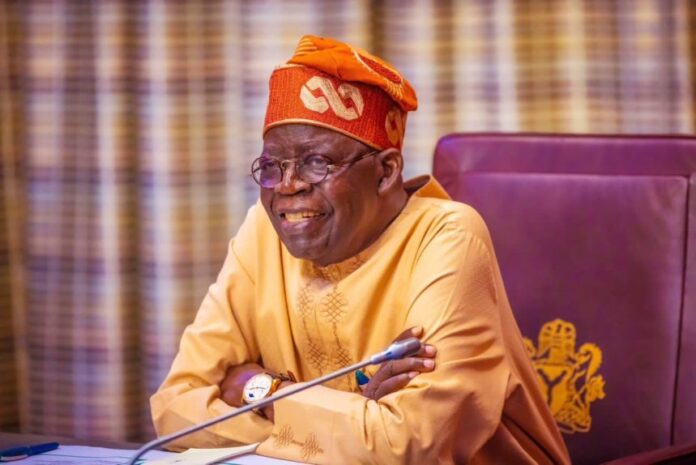Tinubu To IFC: It’s Unfair Perceiving Africa As Backward, Unstable
CHIGOZIE AMADI
President Bola Tinubu on Thursday said the world has to see Africa as a continent that can help the rest of the world, rather than perceiving us as backwards, unstable, and with leadership problems.
The president stated this at a meeting with a delegation of the International Finance Corporation (IFC), a member of the World Bank Group, led by its Managing Director, Mr. Makhtar Diop, at the Presidential Villa, Abuja.
He told the delegation that its high time international development financiers saw Africa as a destination for growth and prosperity.
Tinubu also urged global financiers to consider more strategic investments in agriculture, infrastructure, research, and development on the continent.
“The IFC and the World Bank need to see Africa differently. I am glad an African is at the helm of affairs at IFC, and as an African understands that the potential for growth, peace, stability, and prosperity is here.
“The world has to see us as a continent that can help the rest of the world, and not perceive us as backwards, unstable, and with leadership problems.
“The expectations of the rest of the world on Africa have to change. By looking at Africa as a potential opportunity and not a danger to the rest of the free world, we can stimulate growth and propel inclusiveness.
“You are at the helm now and in a position to change the perception. We are ready to change the narrative and work with you. Africa is open for business, regardless of whatever the perception may be.
“I am an African and proud to be and will maintain the strong position to collaborate with the rest of the world to see Africa as a destination for growth and prosperity,” the president told the IFC delegation led by the Senegal-born managing director.
Acknowledging that Nigeria holds the second-largest IFC portfolio in Africa with an active investment portfolio of $2.1 billion as of April 2024, President Tinubu highlighted the importance of some critical infrastructure projects embarked upon by his administration, such as the 700km Lagos-Calabar coastal highway and the Sokoto-Badagry Expressway.
“We have made various attempts in the past to create dams, but issues with reticulation and irrigation remain. When we consider the living conditions in rural areas where crops are produced, how much funding is allocated for rural roads to expedite transportation to consumer centres?
“The goal of the coastal road and the Sokoto-Badagry Highway is to address this,” the president said.
In his remarks, Mr. Diop informed the president that during his working visit to Nigeria, the IFC had engaged in productive discussions with Nigerian partners to enhance agriculture, increase food production through irrigation farming, upgrade transport networks, and bolster regional integration.
Expressing IFC’s long-term commitment to growing agribusiness in Nigeria, he announced that IFC has signed a $23.3 million loan agreement with Johnvents Industries Limited, a leading agribusiness for economic development and agricultural transformation, to develop the cocoa sector.
“We are supporting small and medium enterprises in the agricultural sector, and they are doing very interesting things. We need to bring in more big players into food production in the country,” the IFC managing director said.
Mr. Diop said the corporation is ready to partner the Nigerian government on new investments in irrigation, road infrastructure, and logistics around the airport under a public private partnership.
He congratulated President Tinubu on his one year in office and commended his bold decisions to revamp Africa’s largest economy.
He pledged IFC’s commitment to long-term investment in Nigeria, adding that its single largest investment in Africa is in Nigeria, where it has invested $1.2 billion in the fertiliser industry.
“We are here to support you. The world has been facing a lot of shocks and difficult situations which have affected many African economies,” Mr. Diop said.
























